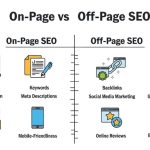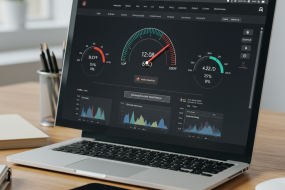
Search engine optimization doesn’t have to break the bank. While premium SEO tools can cost hundreds of dollars monthly, numerous free alternatives deliver impressive results for businesses of all sizes.
The SEO landscape continues evolving rapidly, with AI integration, Core Web Vitals, and user experience signals becoming increasingly important ranking factors. Fortunately, many free SEO tools have adapted to these changes, offering sophisticated features that were once exclusive to paid platforms.
This comprehensive guide explores 15 powerful free SEO tools that can help you optimize your website, track your rankings, and outperform competitors without spending a dime.
Technical SEO and Site Analysis Tools
Google Search Console
Google Search Console remains the most essential free SEO tool available. This platform provides direct insights from Google about your website’s performance, indexing status, and technical issues.
Key features include:
- Performance reports showing clicks, impressions, and average position
- Coverage reports identifying indexing problems
- Core Web Vitals data for page experience optimization
- Manual action notifications and security issue alerts
Search Console helps you understand exactly how Google sees your website. The Performance report reveals which queries drive traffic to your site, while the Coverage report highlights pages that aren’t being indexed properly.
Google PageSpeed Insights
Page speed directly impacts both user experience and search rankings. Google PageSpeed Insights analyzes your website’s loading performance on desktop and mobile devices.
The tool provides:
- Core Web Vitals scores (LCP, FID, CLS)
- Specific recommendations for improvement
- Real-world performance data from actual users
- Lab data for consistent testing conditions
PageSpeed Insights integrates with other Google tools, making it easy to track improvements over time and prioritize optimization efforts.
Screaming Frog SEO Spider (Free Version)
Screaming Frog’s free version crawls up to 500 URLs, making it perfect for small to medium-sized websites. This desktop application identifies technical SEO issues that might be hindering your rankings.
The tool discovers:
- Broken links and redirect chains
- Missing or duplicate meta descriptions
- Oversized images and page titles
- Server response codes and crawl errors
While the free version has limitations, it provides enough functionality for most small business websites and blog audits.
Keyword Research and Content Optimization
Google Keyword Planner
Despite being designed for Google Ads, Keyword Planner offers valuable insights for organic SEO. The tool provides search volume data, competition levels, and keyword suggestions.
Benefits include:
- Historical search volume trends
- Seasonal keyword fluctuations
- Related keyword suggestions
- Geographic search data
To access more detailed data, you’ll need an active Google Ads account, but you don’t need to run campaigns to use the tool.
Ubersuggest (Free Version)
Neil Patel’s Ubersuggest offers limited free searches per day, but provides comprehensive keyword data including search volume, competition, and content ideas.
Features include:
- Keyword difficulty scores
- Content suggestions based on top-performing pages
- Backlink data for any domain
- Site audit functionality
The free version allows three searches per day, which is sufficient for focused keyword research sessions.
AnswerThePublic
This unique tool visualizes search questions and phrases related to your target keywords. AnswerThePublic helps you understand what people are actually asking about your topic.
The tool organizes suggestions into:
- Questions (what, why, how, when, where)
- Prepositions (for, with, without, near)
- Comparisons (versus, like, and)
- Alphabetical keyword variations
This insight helps create content that directly addresses user intent and long-tail search queries.
Backlink Analysis and Outreach
Ahrefs Backlink Checker (Free Version)
Ahrefs offers a limited free version of their backlink checker, showing the top 100 backlinks for any domain along with important metrics.
You can access:
- Domain and URL rating scores
- Top referring domains
- Anchor text distribution
- New and lost backlinks
While limited compared to the paid version, this tool provides valuable competitive intelligence and helps identify link-building opportunities.
Google Analytics 4
GA4 isn’t traditionally considered an SEO tool, but it provides crucial data for understanding organic traffic performance and user behavior.
SEO-relevant features include:
- Organic traffic source analysis
- Page performance metrics
- User engagement data
- Conversion tracking from organic search
Understanding how users interact with your site after arriving from search engines helps optimize for both rankings and conversions.
Local SEO and Business Optimization
Google My Business
For local businesses, Google My Business is essential for local search visibility. This free platform helps you manage your business listing across Google Search and Maps.
Key features include:
- Business information management
- Customer review monitoring and responses
- Local search performance insights
- Post creation and event announcements
Optimizing your Google My Business profile significantly impacts local search rankings and click-through rates.
Schema Markup Validator
Structured data helps search engines understand your content better, potentially earning rich snippets in search results. Google’s Schema Markup Validator tests your structured data implementation.
The tool:
- Validates JSON-LD, Microdata, and RDFa formats
- Identifies markup errors and warnings
- Previews how rich snippets might appear
- Provides implementation guidance
Proper schema markup can increase click-through rates by making your search results more visually appealing and informative.
Content Analysis and Optimization
Yoast SEO (Free Version)
This WordPress plugin helps optimize individual pages and posts for target keywords. Yoast provides real-time suggestions as you write content.
Features include:
- Keyword density analysis
- Readability scoring
- Meta description optimization
- XML sitemap generation
The free version covers essential on-page SEO elements, making it valuable for content creators and bloggers. To dive deeper into how title tags fit into the broader technical landscape, explore our Complete Guide to Technical SEO Services.
Google Trends
Understanding search trends helps you create timely, relevant content. Google Trends shows search interest over time and geographic popularity.
You can:
- Compare multiple keywords
- Identify seasonal trends
- Discover trending topics in your industry
- Analyze regional search patterns
This data helps inform content calendars and identify emerging opportunities before competitors.
Rank Tracking and Monitoring
SERPWatcher (Free Version)
Monitoring your search rankings helps measure SEO progress over time. SERPWatcher’s free version tracks up to 10 keywords daily.
The tool provides:
- Daily ranking updates
- Local ranking tracking
- Competitor comparison
- Historical ranking data
While limited, this free tracking is sufficient for small businesses focusing on a core set of keywords.
SEMrush (Free Version)
SEMrush offers limited free access to their comprehensive SEO toolkit, including keyword research, competitor analysis, and site auditing.
Free features include:
- 10 organic research results per day
- 10 backlink analysis results per day
- 10 advertising research results per day
- Basic site audit functionality
These limitations make it suitable for occasional research rather than daily use, but the data quality is excellent.
Mobile and Technical Testing

Mobile-Friendly Test
Google’s Mobile-Friendly Test checks whether your pages work well on mobile devices. With mobile-first indexing, this has become crucial for SEO success.
The tool:
- Tests individual pages for mobile compatibility
- Identifies specific mobile usability issues
- Provides screenshots of how pages appear on mobile
- Offers suggestions for improvement
Regular mobile testing ensures your site remains accessible across all devices as you make updates.
Making the Most of Free SEO Tools
Create a Weekly SEO Routine
Establish a consistent schedule for using these tools. Check Search Console weekly for new issues, run monthly site audits with Screaming Frog, and use Google Analytics to track progress.
Focus on High-Impact Activities
With limited free tool usage, prioritize activities that deliver the biggest SEO impact. Focus on technical issues first, then content optimization, and finally link building.
Combine Tools for Complete Analysis
No single free tool provides everything you need. Use Google Search Console for indexing data, PageSpeed Insights for performance, and Ubersuggest for keyword research to get a complete picture.
Document Your Findings
Keep detailed records of issues found and improvements made. This documentation helps track progress over time and proves SEO value to stakeholders.
Your Next Steps to SEO Success
Free SEO tools provide everything needed to improve your search rankings without significant investment. Start with Google Search Console and Google Analytics 4 to understand your current performance, then use specialized tools like Screaming Frog and Ubersuggest to identify specific opportunities.
The key to success lies in consistent use rather than sporadic analysis. Set up weekly routines with these tools, focus on fixing technical issues first, and gradually expand into content optimization and link building.
Remember that SEO is a long-term strategy. These free tools provide the foundation for sustainable growth, but patience and persistence are essential for achieving lasting results.


















No Comments